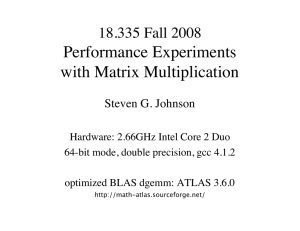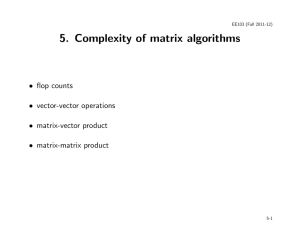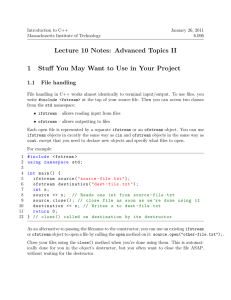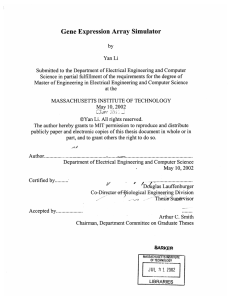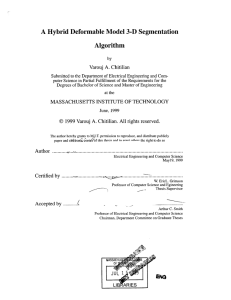Performance Experiments with Matrix Multiplication 18.335 Fall 2008 Steven G. Johnson
advertisement
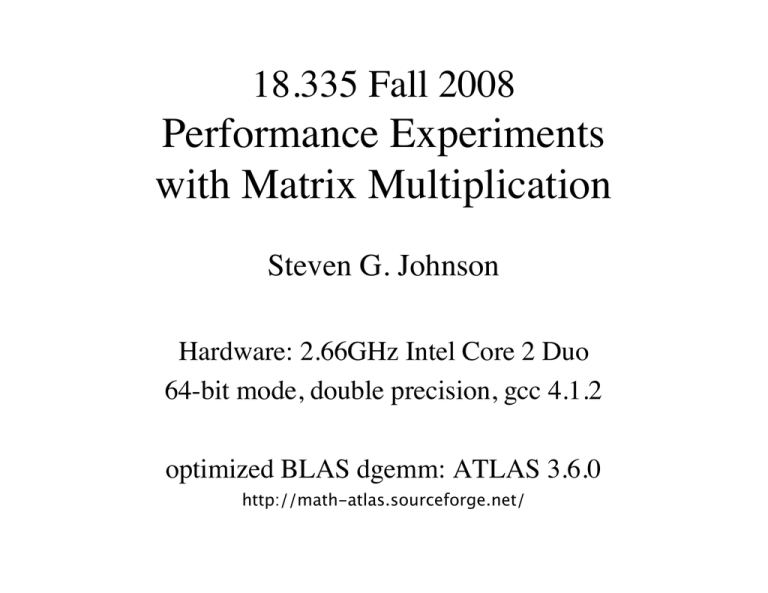
18.335 Fall 2008
Performance Experiments
with Matrix Multiplication
Steven G. Johnson
Hardware: 2.66GHz Intel Core 2 Duo
64-bit mode, double precision, gcc 4.1.2
optimized BLAS dgemm: ATLAS 3.6.0
http://math-atlas.sourceforge.net/
A trivial problem?
C
=
A
B
m×p m×n n×p
the “obvious” C code:
/* C = A B, where A is m x n, B is n x p,
and C is m x p, in row-major order */
void matmul(const double *A, const double *B,
double *C, int m, int n, int p)
{
int i, j, k;
for (i = 0; i < m; ++i)
for (j = 0; j < p; ++j) {
double sum = 0;
for (k = 0; k < n; ++k)
sum += A[i*n + k] * B[k*p + j];
C[i*p + j] = sum;
}
}
€
for i = 1 to m
for j = 1 to p
n
Cij = ∑ Aik Bkj
k=1
2mnp flops
(adds+mults)
just three loops, how complicated can it get?
flops/time is not constant!
(square matrices, m=n=p)
L1 cache
exceeded?
(2.66GHz processor?
why < 1 gigaflops?)
L2 cache
exceeded?
L1 cache
exceeded
for single row?
Not all “noise” is random
All flops are not created equal
nearly peak
theoretical flop rate
(2 flops/cycle via SSE2 instructions)
same #operations
same abstract algorithm
factor of 10 in speed
Things to remember
• We cannot understand performance without
understanding memory efficiency (caches).
– ~10 times more important than arithmetic count
• Computers are more complicated than you think.
• Even a trivial algorithm is nontrivial to implement well.
– matrix multiplication: 10 lines of code → 130,000+ (ATLAS)
